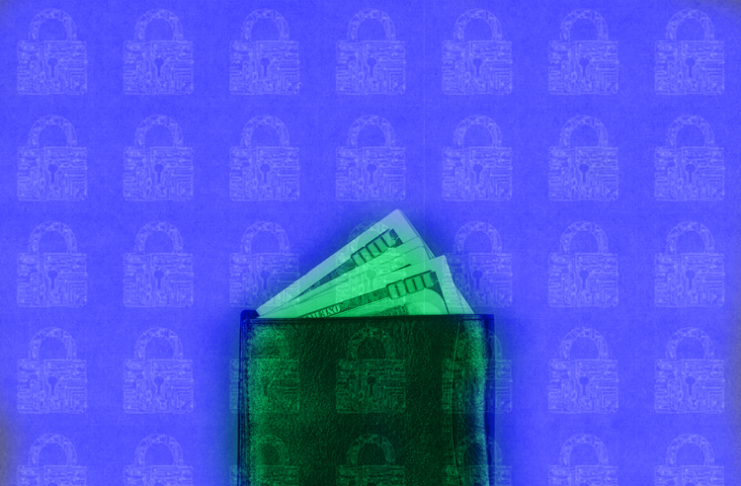As of July 2020, approximately $9.1 billion of value was locked in decentralized finance. By March 2022, around $80 billion of value was reported to be locked in DeFi.
This rapid growth in the DeFi sector can be credited to the increasing use of payment transfers through stablecoins, yield farming, staking, open lending platforms, and decentralized exchanges. These applications offer users higher interest rates than traditional banking, with fewer barriers and requirements for taking out a loan.
What is DeFi?
DeFi, short for decentralized finance, involves eliminating financial intermediaries and providing value through more extensive use cases for blockchain technology.
DeFi includes a variety of simplified services and products that remove all intermediaries, thus disrupting the traditional financial industry. The entire concept is inspired by the blockchain, ensuring that all transactions are recorded in a copy of the distributed ledger and there is no single entity in control of the information.
What is a DeFi Wallet?
A DeFi wallet is a storage solution for DeFi assets that offers users complete asset ownership. DeFi wallets are considered to be one of the safest storage options available today.
A DeFi transfers the power completely to the asset owner, unlike traditional banks that retain control over all the user’s assets in their holding through user verification and other related information.
DeFi wallets help eradicate the need for a third party, thus further revolutionizing the financial industry. In general, most DeFi wallets operate as Web 3.0 wallets with Ethereum (ETH) blockchain compatibility (although this may vary).
DeFi wallets also operate on a non-custodial framework, ensuring that the wallet owner is the only one with access to the funds. Accordingly, such wallets require users to retain full responsibility for keeping their private key safe.
DeFi wallets are known to be among the safest solutions on the market. However, the security of a DeFi wallet is a product of its user, who must keep their login information extra safe.
Factors to consider when picking a DeFi Wallet
Following are some important factors you must take into consideration if you are considering the use of a DeFi wallet:
Compatibility
A good DeFi wallet should be compatible with your web browser as well as the DeFi protocols with which you interact regularly. Some DeFi wallets are also integrated with dApps so that you can interact with DeFi protocols and perform trades without leaving the wallet.
Asset Support
Some DeFi wallets are better at supporting certain assets. While some wallets are designed to enable seamless interaction with assets held online, others natively support assets held in cold storage. Furthermore, some wallets support staking and yield farming, while others don’t. You must pick a wallet that supports the assets and operations that you have and use.
Simplicity
Since you will be using your DeFi wallet often to check on your assets and trade them, it is important to choose a wallet that is simple and convenient to use. One that has a streamlined setup process, non-complicated layout, and user-friendly features will allow you to track and manage your DeFi assets more easily.
Security
An important question to ask when considering wallet security is, “will the wallet provider take the necessary steps to ensure its users’ safety?” Always check the company’s reputation for security and read relevant user reviews before you decide which wallet you want to trust.
CoinStats: a secure DeFi Wallet
CoinStats is a versatile and secure DeFi wallet that allows you to manage all your DeFi and crypto in one place — buy, sell, swap, track, and earn on your crypto.
Features of CoinStats
- CoinStats allows you to track all your Ethereum Mainnet, Binance Smart
- Chain, and DeFi assets with unlimited access, anytime and anywhere.
- The CoinStats app has a clear and simple layout, which allows you to view and monitor your crypto and DeFi holdings on various protocols.
- The CoinStats wallet also gives you full control and allows you to
- export your private keys safely and securely, giving you absolute
- freedom and peace of mind to swap and send funds directly from your wallet.
- With CoinStats, you can seamlessly trade your favorite coins and tokens on BSC, Ethereum, and Polygon without going to multiple exchanges.
- You can sync your bank card easily with your CoinStats wallet to buy crypto with fiat in a few easy steps.
- You can also put your holdings to work and receive up to 20% APY (Annual Percentage Yield) on your crypto assets when you save.
Closing Thoughts
DeFi adoption is on a steady rise, leading to a direct and proportionate increase in the number of DeFi wallet users. DeFi asset holders need to prioritize security, simplicity, and accessibility while choosing a compatible wallet that supports the assets of their choice.
Considering that DeFi is free from centralized control, the onus of security and safety is completely on the asset holder. Therefore if you want to keep your assets safe, it is essential that you choose a secure wallet to store them.
Revolutionary DeFi wallets like CoinStats have identified the core needs of the market and provided comprehensive wallet options suitable for novices and expert traders alike.
No matter which wallet you choose, always remember to put security first and never trust anyone with your security key. The safety of your assets is always in your hands.
DisClamier: This content is informational and should not be considered financial advice. The views expressed in this article may include the author's personal opinions and do not reflect The Crypto Basic opinion. Readers are encouraged to do thorough research before making any investment decisions. The Crypto Basic is not responsible for any financial losses.


